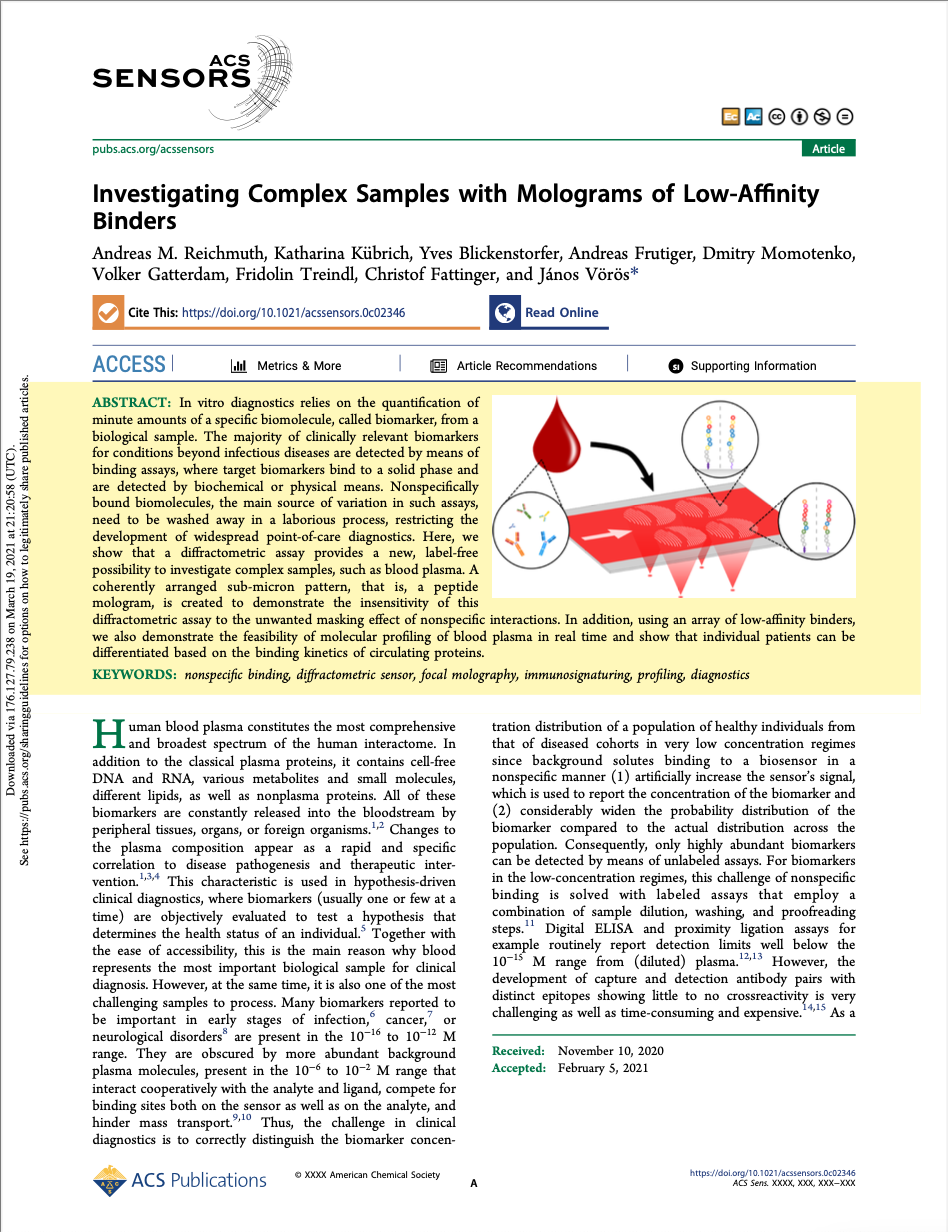Investigating Complex Samples with Molograms of Low-Affnity Binders
In vitro diagnostics relies on the quantification of minute amounts of a specific biomolecule, called biomarker, from a biological sample. The majority of clinically relevant biomarkers for conditions beyond infectious diseases are detected by means of binding assays, where target biomarkers bind to a solid phase and are detected by biochemical or physical means. Nonspecifically bound biomolecules, the main source of variation in such assays, need to be washed away in a laborious process, restricting the development of widespread point-of-care diagnostics. Here, we show that a diffractometric assay provides a new, label-free possibility to investigate complex samples, such as blood plasma. A coherently arranged sub-micron pattern, that is, a peptide mologram, is created to demonstrate the insensitivity of this diffractometric assay to the unwanted masking effect of nonspecific interactions. In addition, using an array of low-affinity binders, we also demonstrate the feasibility of molecular profiling of blood plasma in real time and show that individual patients can be differentiated based on the binding kinetics of circulating proteins.

